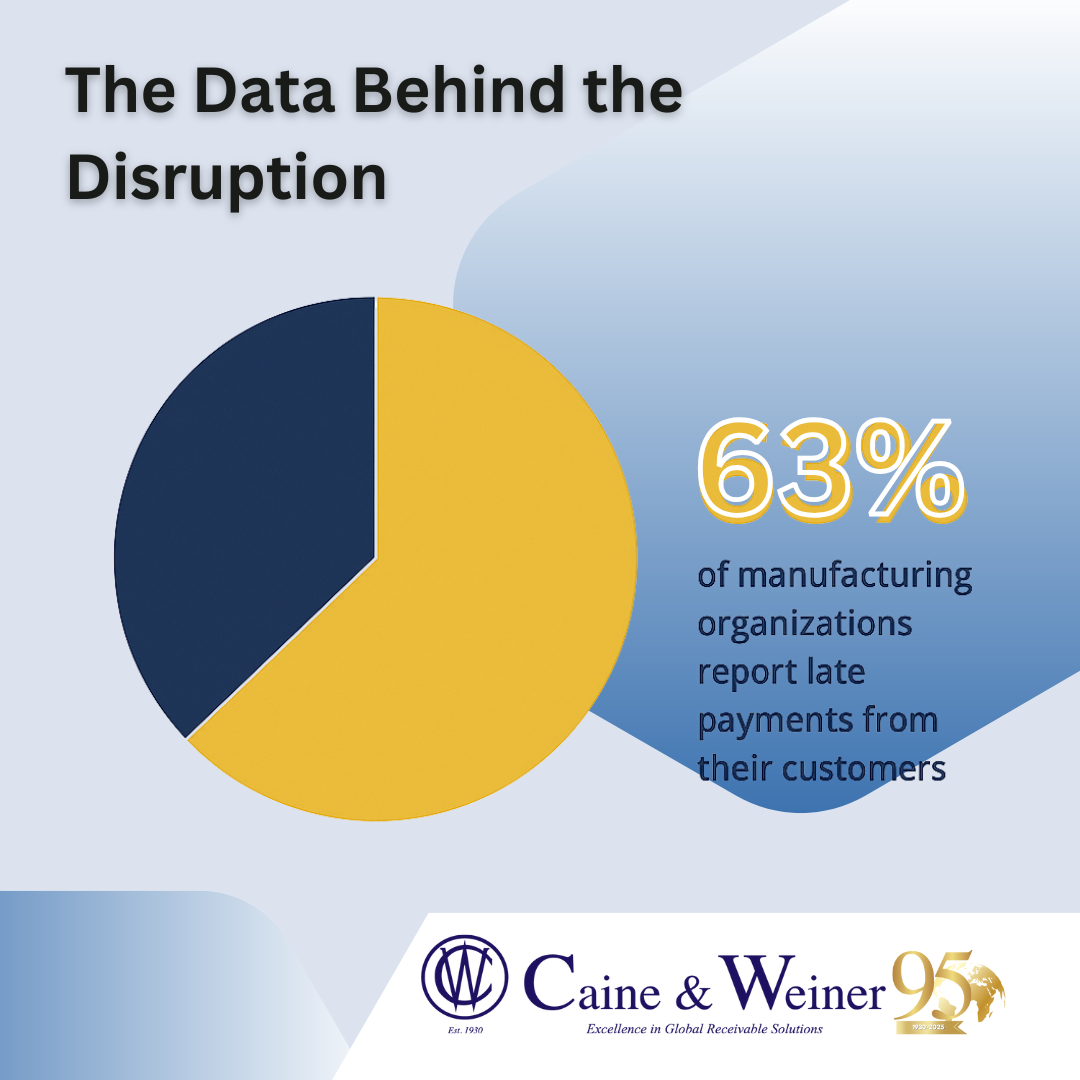The Data Behind the Disruption
The manufacturing sector is facing an urgent financial challenge: 63% of manufacturing organizations report late payments from their customers, placing them among the most at-risk industries for cash flow instability (Upflow, The Wall Street Journal, The Guardian).
This isn’t an isolated issue—51% of suppliers globally have experienced delayed payments, creating widespread supply chain uncertainty (Versapay, Supply Chain 24/7, PYMNTS). When cash flow slows, the entire production ecosystem—from raw materials procurement to final delivery—feels the strain.
The Real-World Consequences
Late payments in manufacturing do more than strain the finance department:
- Frozen purchasing power prevents timely ordering of raw materials.
- Payroll delays can disrupt workforce stability.
- Paused automation projects undermine efficiency goals.
These ripple effects can stall production schedules, erode customer trust, and weaken competitive positioning in a global market that rewards speed and reliability.
Caine & Weiner’s Precision Approach
We understand manufacturing’s need for operational continuity. That’s why we:
- Integrate seamlessly with systems to track invoice aging in real time.
- Apply tactful escalation protocols that maintain strong vendor and customer relationships.
- Leverage predictive analytics to identify accounts most at risk of delinquency before they spiral.
Measurable Results for Clients
- 30–50% reduction in Days Sales Outstanding (DSO).
- Stronger supplier confidence, enabling better pricing and contract terms.
- Uninterrupted production schedules, even in high-stress financial climates.
Final Takeaway
Manufacturing runs on precision, but unpaid receivables inject costly uncertainty into your operations. With Caine & Weiner’s data-driven collections strategy, you can restore order, protect your production pipeline, and keep your supply chain moving—no matter the economic climate.

